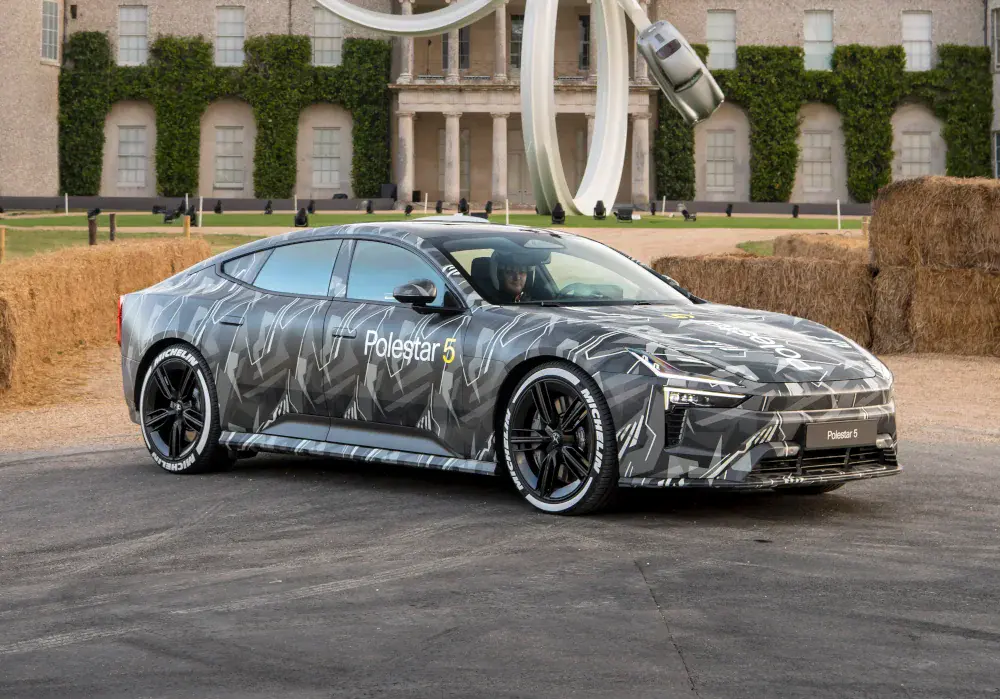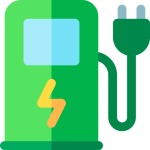
Australia set a new benchmark for electric vehicle adoption in 2024, with 91,292 battery-electric vehicles (BEVs) registered across the year. According to data from the Federal Chamber of Automotive Industries and the Electric Vehicle Council, BEVs accounted for 7.4 per cent of the 1,237,287 new vehicles sold nationwide.
While it was a record year, momentum cooled. BEV sales grew 4.7 per cent on 2023-well down on the 161 per cent surge recorded between 2022 and 2023-underscoring a more competitive market and a notable consumer pivot towards hybrids.
Hybrids surge, PHEVs double from a smaller base
Petrol-electric hybrid vehicles (HEVs) climbed 75 per cent to 172,696 sales in 2024, almost double the volume of BEVs. Plug-in hybrids (PHEVs) also accelerated, with sales doubling to 23,163. Despite that growth, PHEVs remain well behind both BEVs and conventional hybrids in total volume.
Tesla still on top-though its share slips
Tesla retained clear market leadership in BEVs, but its dominance narrowed. The brand’s sales fell 16.9 per cent year-on-year, leaving it with 42 per cent share of the Australian EV market-still the leading position by a wide margin, but lower than in 2023.
Best-selling EV: Tesla Model Y (21,253 sales). Among all SUVs, the Model Y ranked seventh overall, trailing the Toyota RAV4 (58,718), Mitsubishi Outlander (27,613), Ford Everest (26,494), Mazda CX-5 (22,835), MG ZS (22,629) and Kia Sportage (22,210).
Best-selling mid-size car: Tesla Model 3 (17,094 sales), outpacing the Toyota Camry (15,401) for the second consecutive year.
Value plays and brand standings
By brand, BYD secured second place with 14,260 BEV sales, ahead of MG with 8,239. In the premium segment, BMW led luxury EV sales with 7,787 deliveries-meaning 29.6 per cent of BMW’s local sales are now fully electric. Volvo posted 3,862 EV sales, with 43.4 per cent of its Australian volume now electric.
Aggressive pricing played a decisive role in the second half of the year. The MG4 finished as Australia’s third best-selling EV with 6,934 sales, buoyed by brief drive-away pricing from $30,990. The BYD Atto 3 followed closely with 6,393 sales.
More choice than ever
Australians had access to 87 different EV models in 2024, reflecting a rapidly diversifying market that is intensifying competition on price, range and features.
EV Sales List of Every Electric Vehicle Sold in Australia in 2024
| Rank | Make | Model | Sales |
| 1 | Tesla | Model Y | 21,253 |
| 2 | Tesla | Model 3 | 17,094 |
| 3 | MG | MG4 | 6,934 |
| 4 | BYD | Seal | 6,393 |
| 5 | BYD | Atto 3 | 5,751 |
| 6 | BMW | iX1 | 2,618 |
| 7 | Volvo | EX30 | 2,129 |
| 8 | BYD | Dolphin | 2,116 |
| 9 | BMW | i4 | 2,062 |
| 10 | Kia | EV6 | 1,785 |
| 11 | Polestar | 2 | 1,459 |
| 12 | Hyundai | Kona | 1,363 |
| 13 | BMW | iX2 | 1,280 |
| 14 | MG | ZS EV | 1,262 |
| 15 | GWM | Ora | 1,225 |
| 16 | Volvo | XC40 | 1,173 |
| 17 | BMW | iX3 | 1,092 |
| 18 | Mercedes-Benz | EQA | 1,044 |
| 19 | Toyota | bZ4X | 977 |
| 20 | Hyundai | Ioniq 5 | 933 |
| 21 | Mercedes-Benz | EQE SUV | 759 |
| 22 | Ford | Mustang Mach-E | 673 |
| 23 | Kia | Niro Electric | 649 |
| 24 | Kia | EV5 | 608 |
| 25 | Kia | EV9 | 568 |
| 26 | Volvo | C40 | 560 |
| 27 | BMW | iX | 556 |
| 28 | Mini | Countryman EV | 516 |
| 29 | Mercedes-Benz | EQB | 504 |
| 30 | Cupra | Born | 465 |
| 31 | Mini | Cooper Electric | 426 |
| 32 | Subaru | Solterra | 386 |
| 33 | Hyundai | Ioniq 6 | 374 |
| 34 | Audi | Q4 e-tron | 357 |
| 35 | Nissan | Leaf | 357 |
| 36 | Porsche | Taycan | 282 |
| 37 | Renault | Megane E-Tech | 266 |
| 38 | Lexus | RZ | 215 |
| 39 | Peugeot | e-2008 | 207 |
| 40 | Chery | Omoda E5 | 197 |
| 41 | Fiat | 500e/Abarth | 194 |
| 42 | Mini | Aceman | 183 |
| 43 | Polestar | 4 | 183 |
| 44 | Audi | Q8 e-tron | 174 |
| 45 | Mercedes-Benz | EQE | 162 |
| 46 | LDV | eDeliver 7 | 150 |
| 47 | BMW | i5 | 143 |
| 48 | Mercedes-Benz | EQS SUV | 136 |
| 49 | Audi | e-tron GT | 100 |
| 50 | Lexus | UX | 92 |
| 51 | Peugeot | e-Partner | 92 |
| 52 | Jeep | Avenger | 79 |
| 53 | Porsche | Macan EV | 78 |
| 54 | Polestar | 3 | 71 |
| 55 | Genesis | GV60 | 70 |
| 56 | Ford | E-Transit | 69 |
| 57 | Mercedes-Benz | EQC | 69 |
| 58 | Foton | Mobility T5 | 68 |
| 59 | Leapmotor | C10 | 64 |
| 60 | Renault | Kangoo E-Tech | 64 |
| 61 | Skoda | Enyaq | 48 |
| 62 | MG | Cyberster | 43 |
| 63 | BMW | i7 | 36 |
| 64 | LDV | eDeliver 9 | 28 |
| 65 | LDV | eT60 | 28 |
| 66 | Mercedes-Benz | e-Vito | 23 |
| 67 | LDV | Mifa 9 | 20 |
| 68 | Mercedes-Benz | EQS | 20 |
| 69 | Hyundai | Mighty | 19 |
| 70 | Rolls-Royce | Spectre | 19 |
| 71 | Genesis | GV70 Electrified | 17 |
| 72 | Mercedes-Benz | EQV | 14 |
| 73 | Jaguar | I-Pace | 12 |
| 74 | Lotus | Eletre | 12 |
| 75 | Peugeot | e-Expert | 9 |
| 76 | Sea Electric | MD | 9 |
| 77 | Volkswagen | ID.Buzz | 8 |
| 78 | Mercedes-Benz | e-Sprinter | 6 |
| 79 | Volkswagen | ID.Buzz Cargo | 6 |
| 80 | Audi | Q6 e-tron | 5 |
| 81 | Lotus | Emeya | 5 |
| 82 | Genesis | G80 Electrified | 4 |
| 83 | Mazda | MX-30 EV | 3 |
| 84 | SEA Electric | HD | 3 |
| 85 | Peugeot | e-308 | 2 |
| 86 | Iveco | HD van | 1 |
| 87 | Mercedes-Benz | G580e | 1 |
EV Sales in Australia 2024: Ranking Every Car Maker by Electric Vehicle Performance
| Rank | Make | Sales | % of EV sales |
| 1 | Tesla | 38,347 | 41.9% |
| 2 | BYD | 14,260 | 15.6% |
| 3 | MG | 8,239 | 9.0% |
| 4 | BMW | 7,787 | 8.5% |
| 5 | Volvo | 3,862 | 4.2% |
| 6 | Kia | 3,610 | 3.9% |
| 7 | Mercedes-Benz | 2,738 | 3.0% |
| 8 | Hyundai | 2,689 | 2.9% |
| 9 | Polestar | 1,713 | 1.9% |
| 10 | GWM | 1,225 | 1.3% |
| 11 | Mini | 1,125 | 1.2% |
| 12 | Toyota | 977 | 1.1% |
| 13 | Ford | 742 | 0.8% |
| 14 | Audi | 636 | 0.7% |
| 15 | Cupra | 465 | 0.5% |
| 16 | Subaru | 386 | 0.4% |
| 17 | Porsche | 360 | 0.4% |
| 18 | Nissan | 357 | 0.4% |
| 19 | Renault | 330 | 0.4% |
| 20 | Peugeot | 310 | 0.3% |
| 21 | Lexus | 307 | 0.3% |
| 22 | LDV | 226 | 0.2% |
| 23 | Chery | 197 | 0.2% |
| 24 | Fiat | 194 | 0.2% |
| 25 | Genesis | 91 | 0.1% |
| 26 | Jeep | 79 | 0.1% |
| 27 | Foton | 68 | 0.1% |
| 28 | Leapmotor | 64 | 0.1% |
| 29 | Skoda | 48 | 0.1% |
| 30 | Rolls-Royce | 19 | 0.0% |
| 31 | Lotus | 17 | 0.0% |
| 32 | Volkswagen | 14 | 0.0% |
| 33 | Jaguar | 12 | 0.0% |
| 34 | Sea Electric | 12 | 0.0% |
| 35 | Mazda | 3 | 0.0% |
| 36 | Iveco | 1 | 0.0% |
Source: Federal Chamber of Automotive Industries and EV Council
Conclusion
Australia’s EV market reached a new high in 2024, even as growth moderated from the breakneck pace of recent years. Tesla remains the benchmark, but the competitive set is broadening, with BYD, MG and premium players like BMW and Volvo lifting their electric share. Hybrids captured the biggest gains, underscoring a pragmatic turn from buyers amid cost-of-living pressures and evolving charging infrastructure. With 87 EV nameplates now on sale, 2025 is shaping up as a year where sharper pricing, model launches and policy settings will determine whether BEVs can reclaim faster growth.
FAQs
What share of Australia’s new-car market was electric in 2024?
BEVs made up 7.4 per cent of all new vehicles sold, or 91,292 out of 1,237,287 registrations.
Which EV was Australia’s top-seller in 2024?
The Tesla Model Y led the EV market with 21,253 sales and ranked seventh among all SUVs.
Which was the best-selling mid-size car?
Tesla’s Model 3, with 17,094 sales, outsold the Toyota Camry (15,401) for the second year running.
Why did EV growth slow compared with 2023?
BEV sales rose 4.7 per cent in 2024, a marked slowdown from 2022-2023’s 161 per cent surge. Growing competition, increased consumer interest in hybrids, and price sensitivity all contributed.
How did hybrids perform?
Strongly. HEV sales jumped 75 per cent to 172,696, nearly double BEV volume.
Are PHEVs catching up?
PHEV sales doubled to 23,163 in 2024, but they remain well behind both BEVs and conventional hybrids.
Which brands led EV sales?
Tesla led overall, with BYD second (14,260) and MG third (8,239). In luxury, BMW led with 7,787 EVs, while 43.4 per cent of Volvo’s Australian sales were electric.
How many EV models were available?
Eighty-seven EV models were sold in Australia in 2024, indicating a rapidly expanding market.
About EV Evolution
EV Evolution is the leading online platform dedicated to Australian electric vehicle owners and enthusiasts. We foster a vibrant community, delivering essential EV news and insights, and enhancing user engagement through our innovative, AI-powered chatbot for dynamic discussions. Our mission is to empower Australian electric vehicle owners and enthusiasts by fostering a vibrant, AI-driven online community that connects, informs, and advances the nation’s electric vehicle landscape.




 and then
and then 